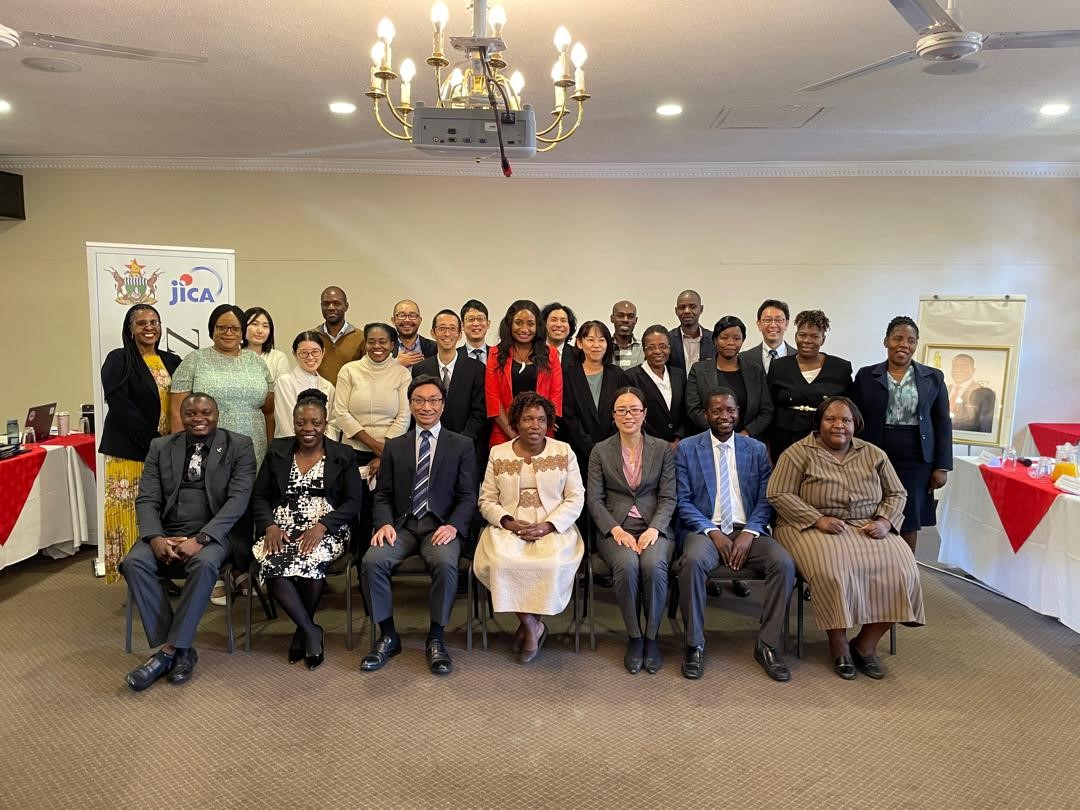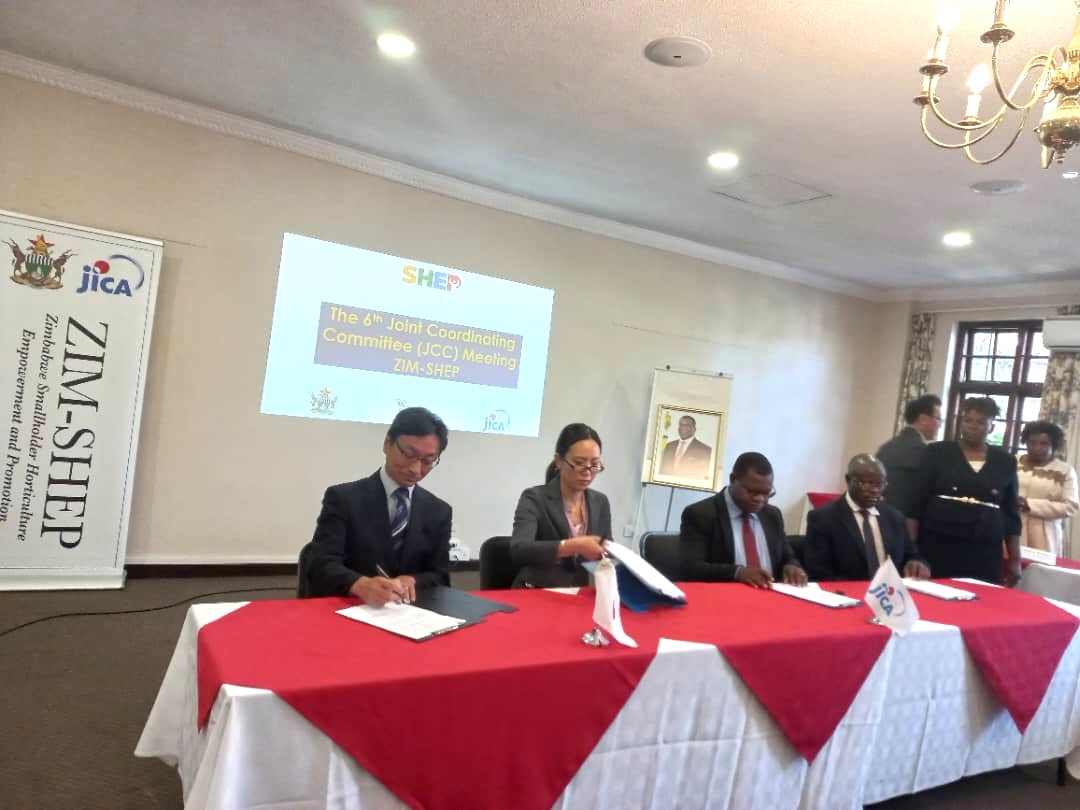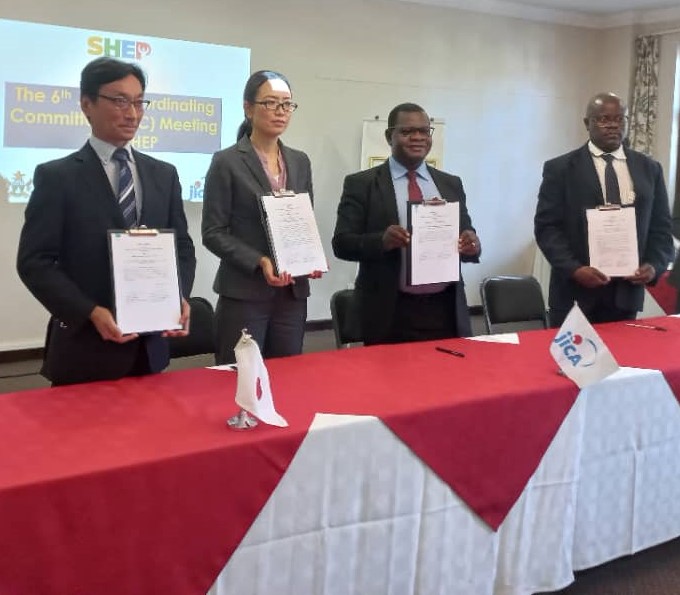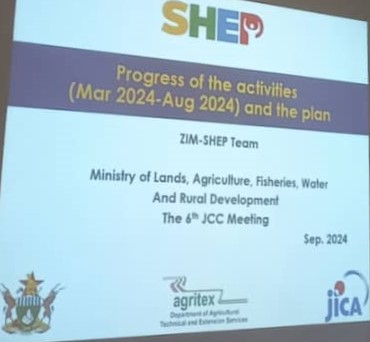ZIM-SHEP Joint Terminal Evaluation
2024.10.16
The Joint Terminal Evaluation Mission was in Zimbabwe from 19 August 2024 to 7 September 2024 to conduct a monitoring and evaluation for the Project for Zimbabwe Smallholder Horticulture Empowerment and Promotion (ZIM-SHEP). The goal of the project is to improve the livelihood of the smallholder farmers in the target irrigation schemes (8 Provinces and 24 Districts). The project started in March 2019 with a five-year project period, and due to the interruption of project activities by the COVID-19 pandemic between 2020 and 2021, the project was extended by one more year to close out in March 2025.
The mission from Japan formulated the Joint Terminal Evaluation Mission together with three officials of the Ministry of Lands, Agriculture, Fisheries, Water and Rural Development and they conducted Monitoring and Evaluation activities in two provinces where the project activities were implemented to assess the impact of the SHEP approach based extension activities. The in-depth interviews with farmers, extension officers, and their supervisors provided the Mission with a deep understanding of the farmers' experiences, challenges, and perceptions regarding the SHEP concept.
The project uses the SHEP approach to teach farmers how to conduct market surveys and strengthen farmers’ capacity to practise market oriented horticultural businesses, which is consistent with the needs of the beneficiaries. The Joint Terminal Evaluation team also had discussions with other Development Partners who have embedded the SHEP concept in their project, such as World Food Programme (WFP). They have confirmed that the SHEP approach has significantly helped building resilience within the small-scale farmers and enhanced the sustainability of their activities.
After the monitoring and evaluation by the Joint Terminal Evaluation Mission, a Joint Coordinating Committee (JCC) meeting was held on the 5th of September 2024 at a hotel in Harare. The JCC meeting was graced by the Permanent Secretary of the Ministry of Lands, Agriculture, Fisheries, Water and Rural Development, Professor Obert Jiri. In his remarks, the Permanent Secretary expressed his heartfelt appreciation to JICA for the continuous support rendered to the farmers. He said that he would like the SHEP concept to be mainstreamed into all agricultural activities, such as livestock and fish farming. He also said that as the Ministry proceeds with Rural Development 8.0, which emphasizes on improving livelihood at the household level, there is need to infuse SHEP in all the Village Business Units.
The Resident Representative of JICA Zimbabwe Office expressed his gratitude to the Ministry of Lands, Agriculture, Fisheries, Water and Rural Development for their continuous commitment in implementing ZIM-SHEP activities, even during the COVID-19 pandemic. The team remained committed in ensuring its success.
It was during the JCC meeting were the Joint Terminal Evaluation team reported on their findings regarding the implementation of the SHEP approach. The results from the Joint Terminal Evaluation team showed that the implementation of SHEP increased the horticultural income of most of the target farmers, which in turn improved their livelihoods. This not only increased the income of each farmer but also strengthened the cohesiveness of the farmer group and improved the maintenance of irrigation facilities through improved cash flow. The increased income has led to better management of irrigation facilities, which in turn has improved crop productivity.
The Evaluation team recommended that the project tenure be extended by 3 more months so that the project completes its activities and both sides agreed to the recommendations. A Record of Discussion was signed by both parties. The project will close out in June 2025.





scroll